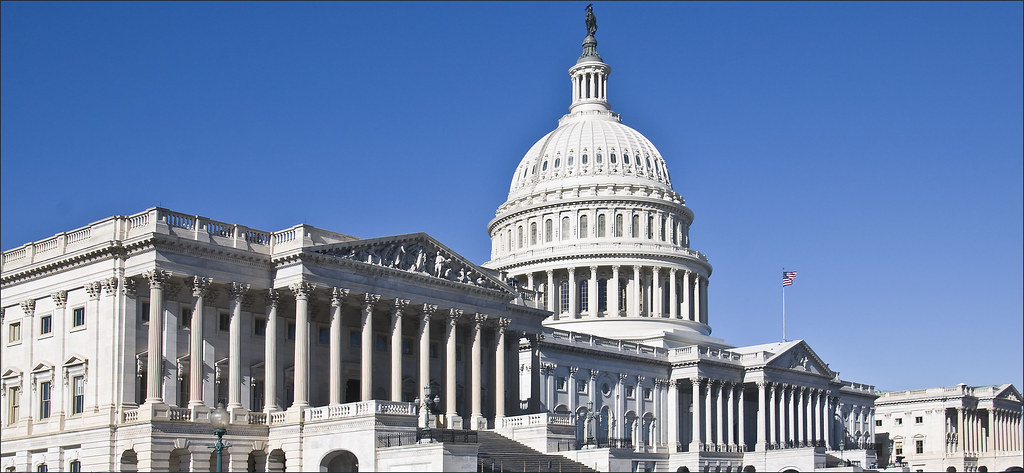Tag: incumbent
-
303 state legislative incumbents lost re-election campaigns in 2024

There were 5,807 state legislative seats up for election on November 5, 2024, in 44 states. Across those elections, 303 incumbents lost their re-election bids: 134 in general elections and 169 in primaries. This was the second even-year election in a row that primary defeats outnumbered those in general elections. Across primary elections in 2024,…
-
Lower rate of of state executive incumbents are seeking re-election in 2024 compared to prior years
Ballotpedia’s 2024 study of competitiveness in state executive official elections found that 45.1% of incumbents (74 incumbents across 164 seats) did not seek re-election, leaving those seats open. That was above the average rate of open state executive seats from 2011-2023 (35.7%). Every year, Ballotpedia publishes an annual report on the competitiveness of state executive…
-
First time since 2010 that a state has over 65% of its incumbents contested in primaries

This year, the states with the highest percentages of incumbents contested in primaries are Wyoming (65.6%), South Dakota (60.9%), Nebraska (50.0%), Idaho (49.5%), Arizona (45.7%), and California (45.5%). Four of these states have Republican trifectas, one has a Democratic trifecta, and the other has a divided government. A primary is contested when there are more…
-
136 state legislative incumbents have been defeated in primaries this year – four of which were legislative leaders

In the 37 states that have held primaries so far this year, 136 state legislative incumbents—3.4% of all incumbents seeking re-election—have lost. That’s less than at this point in 2022, when 174, or 4.6%, of incumbents had lost in primaries. Four of the 136 defeated incumbents were legislative leaders: three Republican state senators and one…
-
Three U.S. House incumbents are in contested primaries in Oregon this year—the fewest since 2014

This year’s filing deadline for candidates running for Congress in Oregon was March 12, 2024. Thirty candidates are running for Oregon’s six U.S. House districts, including 17 Democrats and 13 Republicans. That’s 5.0 candidates per district, less than the 7.5 candidates per district in 2022, the 8.0 candidates per district in 2020, and the 6.4…
-
Three U.S. House incumbents are in contested elections in Georgia this year—a decade-low

This year’s filing deadline for candidates running for Congress in Georgia was March 8, 2024. Fifty-five candidates are running for Georgia’s 14 U.S. House districts, including 30 Democrats and 25 Republicans. That’s 3.9 candidates per district, lower than the 5.9 candidates per district in 2022 and the 5.5 in 2020. This is the first election…
-
Decade-high number of incumbents in contested state legislative primaries in Texas

Fifty-eight Texas state legislative incumbents face primary challenges, representing 40% of all those running for re-election. This is the highest number and percentage of contested incumbents since 2014. Of the 58 incumbents in contested primaries, 13 are Democrats and 45 are Republicans. Texas has 93 contested state legislative primaries this year, a 3% decrease from…
-
Fewest number of incumbents running for this cycle’s state executive offices since 2011

The number of incumbents running in this year’s state executive elections—20—is the fewest in the past four cycles for these offices. These are the 36 executive positions that voters decide in three states—Kentucky, Louisiana, and Mississippi—in the year prior to each presidential election. The number of incumbents running for re-election for these offices has declined…
-
Mississippi State Senate sees lowest number of incumbent retirements since 2011

Three incumbents did not file for re-election to Mississippi’s Senate in 2023. This was the lowest number of retirements since 2011, and a 66% decrease from the average of 8.7 retirements per cycle between 2011 and 2019. Mississippi is holding its primary on Aug. 8, with a primary runoff on Aug. 29. The general election…
-
3.7% of state legislative incumbents who filed for re-election have lost in primaries

So far this year, seven state legislative incumbents—five Democrats and two Republicans—have lost to primary challengers. As of June 21, there were two incumbents in uncalled races. Across the two states that have held primaries, 3.7% of incumbents running for re-election have lost, slightly fewer than in 2021 (3.9%). These totals include data from both legislative…

